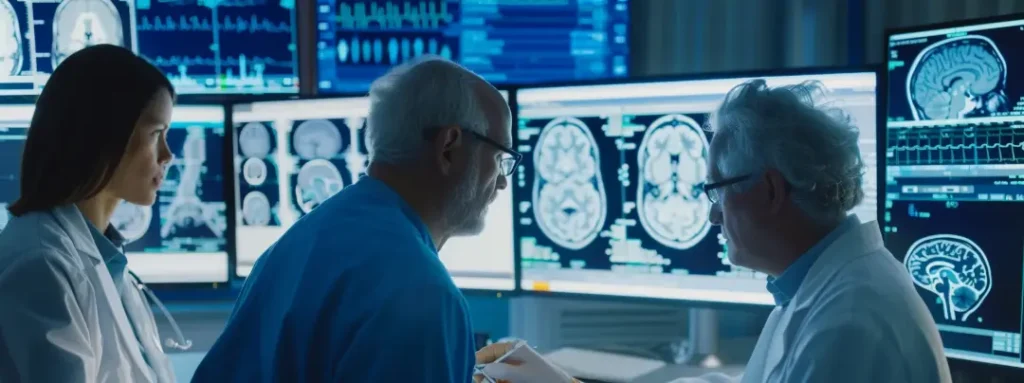When families contend with an aging loved one’s memory loss or confusion, it’s essential to understand the differences between dementia and Alzheimer’s disease. Although the terms are often used interchangeably, they refer to different medical conditions. Dementia describes a broad category of brain diseases that impair cognitive abilities and daily functioning, whereas Alzheimer’s is a specific disease that causes dementia. By educating ourselves on the nuances, we facilitate better communication with healthcare professionals and can advocate for the most effective treatments. Below, we dive into a detailed comparison to improve our comprehension of these conditions.
Understanding the Key Differences Between Dementia and Alzheimer’s Disease
Understanding the difference between dementia and Alzheimer’s disease is crucial for accurate diagnosis and treatment. Dementia is a general term for symptoms like memory loss and impaired reasoning, caused by various conditions. Alzheimer’s disease is the most common cause of dementia, but not the only one—other factors like vitamin deficiencies or infections can also lead to dementia symptoms.
Unlike some forms of dementia that may improve with treatment, Alzheimer’s is a progressive and irreversible brain disorder. Its symptoms worsen over time, and current treatments only help manage the condition. Knowing the distinction helps patients and caregivers make informed decisions and seek the right medical guidance.
Exploring the Concept of Dementia as an Umbrella Term
Dementia is an umbrella term for cognitive impairments that disrupt daily life, including memory loss and communication difficulties. While Alzheimer’s is the most common cause, other types like vascular dementia, Lewy body dementia, and frontotemporal disorders also fall under this category. Accurate diagnosis is essential, as each type progresses differently and requires specific treatments.
For instance, vascular dementia often stems from reduced blood flow to the brain, calling for cardiovascular-focused care. Some dementia-like symptoms are reversible, caused by factors such as medications or nutrient deficiencies. Identifying the exact type through exams like brain scans and blood tests is key to effective, personalized care and intervention.
Alzheimer’s Disease: A Major Cause of Dementia
Alzheimer’s disease is the leading cause of dementia, causing gradual and irreversible damage to brain cells and their communication pathways. Unlike some forms of dementia, Alzheimer’s results in continuous cognitive decline. The disease is linked to the buildup of amyloid plaques and tau tangles, proteins that disrupt neuronal function.
These proteins are key targets in ongoing research for potential treatments. Symptoms begin with mild memory loss and worsen over time, eventually impairing basic functions and recognition of loved ones. Though there is no cure, available treatments can help manage symptoms and improve quality of life through medications and behavioral strategies tailored to disease progression.
Symptoms and Diagnosis: Distinguishing Between Dementia and Alzheimer’s

The overlapping symptoms of dementia and Alzheimer’s often complicate diagnosis, though differences in onset and progression offer clues. Alzheimer’s typically begins with short-term memory loss and progresses to long-term memory impairment, while other dementias may initially impact language or attention.
Diagnosing these conditions involves physical exams, patient history, cognitive testing, and brain imaging tools like MRI or CT scans to detect patterns specific to each disorder. Age is also a key factor; Alzheimer’s is more common in older adults, whereas conditions like Huntington’s disease or trauma-related dementia may appear earlier. Evaluating symptom characteristics alongside patient background helps differentiate between various forms of dementia.
Managing and Treating Dementia vs. Alzheimer’s Disease: What You Need to Know
Dementia treatment varies by type, with some forms treatable through addressing underlying causes, like infections, while Alzheimer’s disease focuses on symptom management. Common medications include cholinesterase inhibitors for Alzheimer’s and dopamine-boosting drugs for Parkinson’s-related dementia.
A comprehensive care approach also includes lifestyle interventions such as exercise, cognitive stimulation, and a healthy diet to support brain function. Home modifications and caregiver involvement are vital, emphasizing the importance of education and support for families. As research advances, new treatments are emerging, making it crucial for patients and caregivers to stay informed through healthcare providers and advocacy organizations.
Overall, a profound understanding of the variations between dementia and Alzheimer’s disease is instrumental in shaping the management of these conditions. Knowledge empowers patients, families, and caregivers in making informed decisions tailored to each unique situation, which is pivotal in maintaining the highest possible quality of life for those affected.
